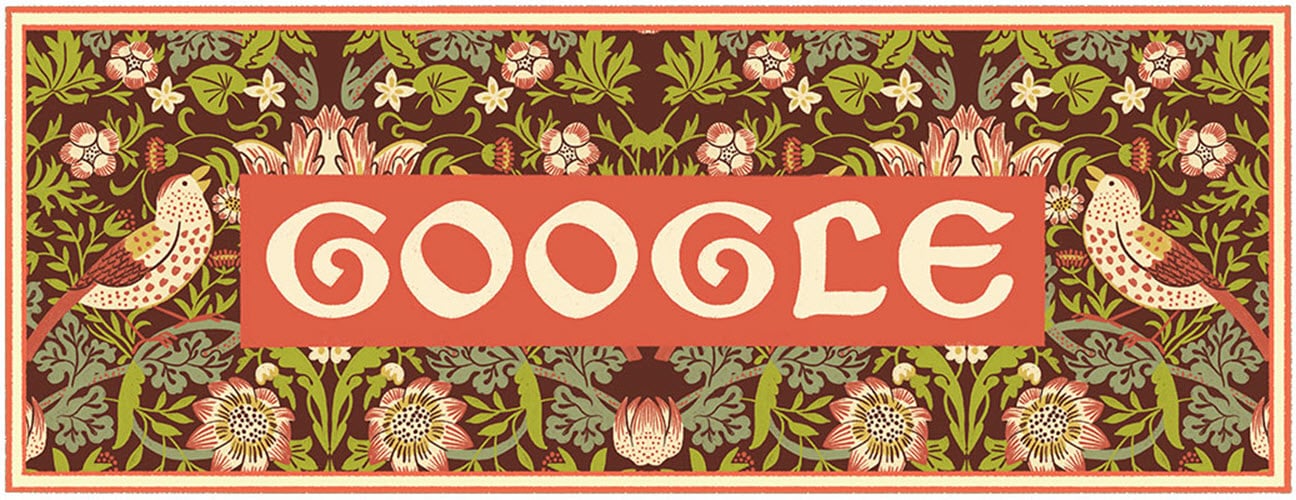William Morris: Visionary of the Arts and Crafts Movement

Image Courtesy: Google Doodle
William Morris (24 March 1834 – 3 October 1896) was a British textile designer, poet, writer, and socialist activist who played a key role in the Arts and Crafts movement in the late 19th century. Morris is remembered for his contributions to the decorative arts, as well as his political activism and his influential writings on art, design, and social justice.
Life and Career
Morris was born in Walthamstow, Essex, England, on 24 March 1834. His father was a successful businessman, and Morris was educated at Oxford University, where he became interested in art and design. After graduating, he worked as an apprentice to Gothic Revival architect G.E. Street.
In 1856, Morris met artist and designer Edward Burne-Jones, and the two became close friends and collaborators. Together, they worked on a variety of artistic projects, including stained glass windows, tapestries, and furniture.
In 1861, Morris established the decorative arts company Morris, Marshall, Faulkner & Co. (later known as Morris & Co.) with a group of like-minded artists and craftsmen. The company produced high-quality furniture, textiles, and wallpaper, and Morris became known for his innovative designs and use of natural materials.
Morris was also an active member of the socialist movement and wrote extensively on political and social issues. He was a founding member of the Socialist League in 1884 and became a prominent advocate for workers’ rights. He died on 3 October 1896 in Hammersmith, England at age of 62.
Award and Legacy
Morris’s work had a significant impact on design and aesthetics, and he remains an important figure in the history of decorative arts and design. Some of his most famous creations include his iconic wallpaper designs, such as “Trellis” and “Willow Boughs,” as well as his hand-woven textiles, stained-glass windows, and furniture.
In addition to his artistic contributions, Morris was also a prolific writer and social activist. He wrote extensively on topics ranging from medieval art and architecture to socialism and political theory, and he played a prominent role in the British socialist movement, advocating for workers’ rights and criticizing the excesses of capitalism.
Morris’s legacy continues to be celebrated and studied today, with many museums, galleries, and universities showcasing his work and exploring his ideas. He has been honored with numerous awards and accolades, including induction into the Royal Academy of Arts in 1885 and a posthumous knighthood in 1896. The William Morris Society, founded in 1955, promotes Morris’s work and ideals and hosts events and exhibitions dedicated to his legacy.
Overall, William Morris’s influence can be seen in a wide range of fields, from design and art to politics and social activism. His commitment to craftsmanship, beauty, and social justice continues to inspire and resonate with people around the world. On 24 March 2016, Google celebrated William Morris’ 182nd birthday with a doodle.
Observer Voice is the one stop site for National, International news, Sports, Editor’s Choice, Art/culture contents, Quotes and much more. We also cover historical contents. Historical contents includes World History, Indian History, and what happened today. The website also covers Entertainment across the India and World.

